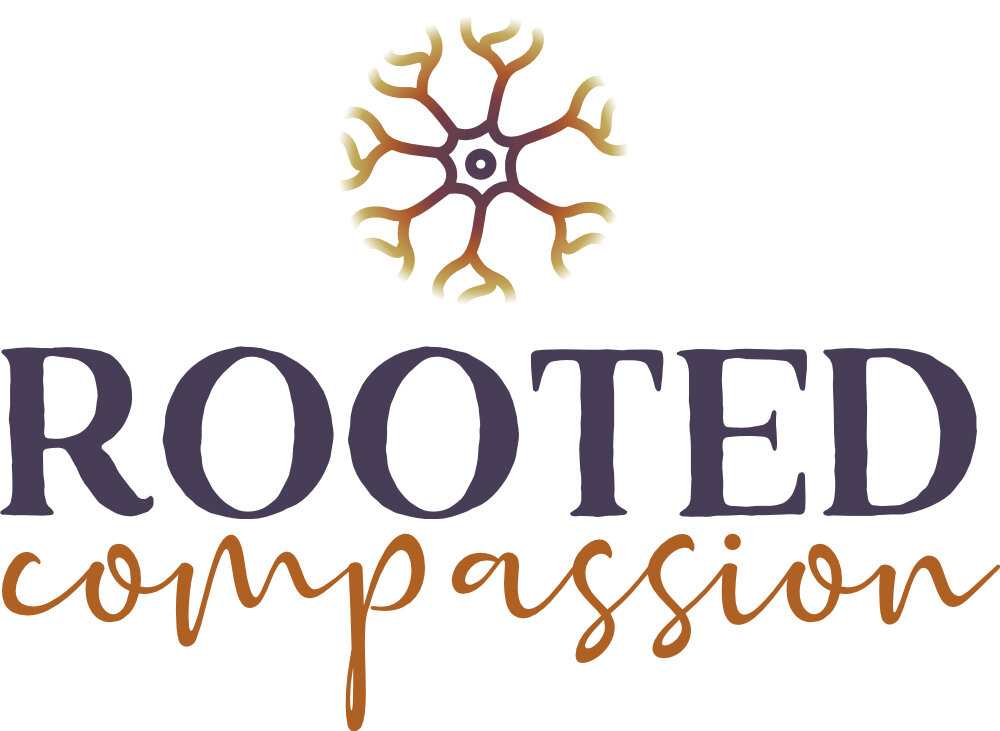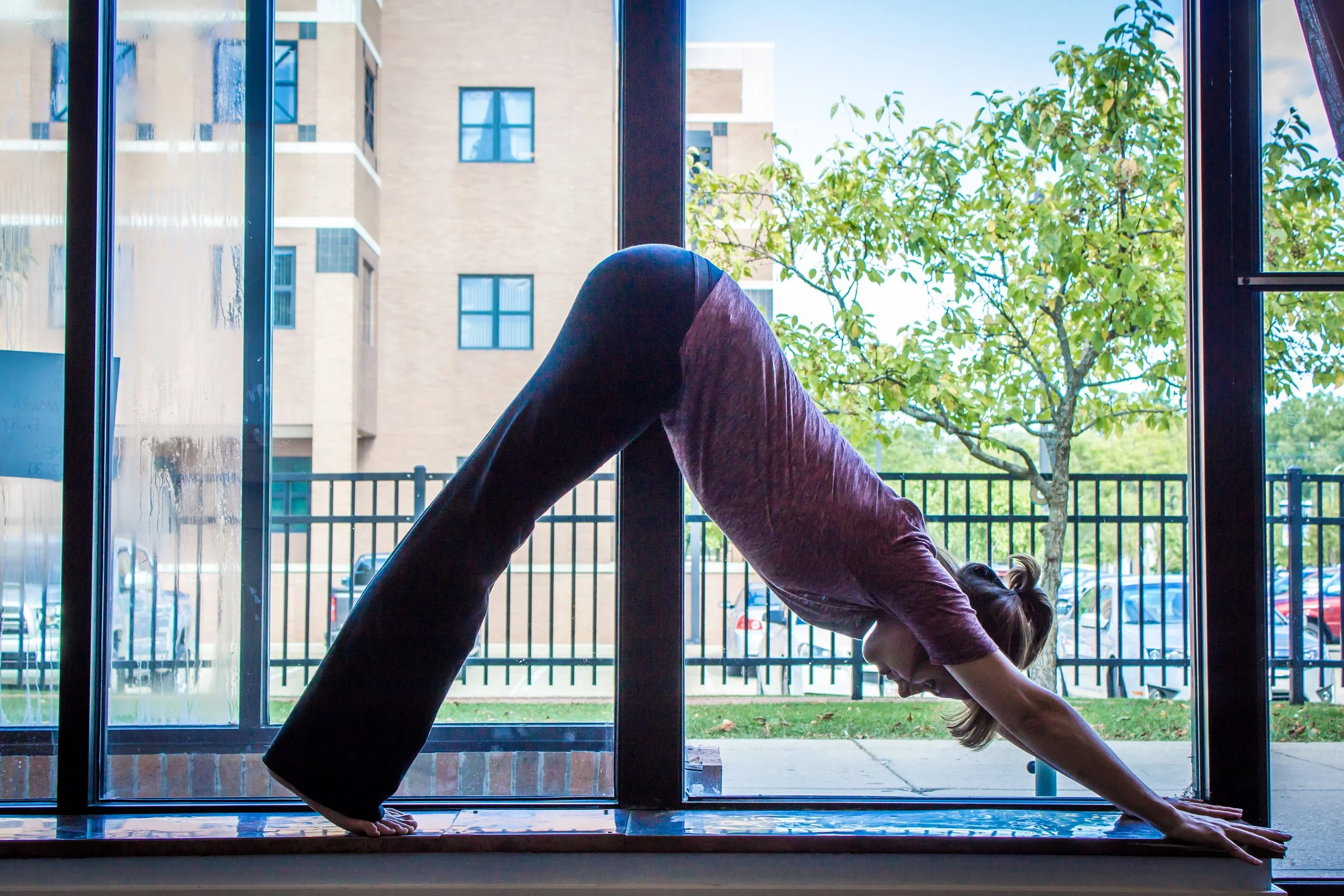Learning to Let Go in Yoga, Therapy and Life: How Relaxing Your Nervous System Will Reap Major Mental Health Benefits
"The decision to relax rather than to grip, even in the face of impatience or fear, is a conscious and brave choice" -BKS Iyengar
I started studying Iyegar yoga in my early twenties, and thus began a lifelong journey in exploring the variations between gripping, engaging and relaxing.
At the beginning of my study, there was A LOT OF GRIPPING meaning my whole body was clenched—even parts that were not necessary to do the pose like my jaw, throat and eyebrows. Putting my body in new configurations set off alarm bells. My mind would scream, “You want me to put my leg where???” “Come on, we have been in this pose forever! Can’t we move on?!” My sweaty palms would be sliding off the mat in downward facing dog and my arms flailing when trying to maintain balance in a wide legged stance. All the while, the teacher would be calmly directing me to pay attention to my breath, the feeling of my feet on the floor, and the length of my limbs.
After an hour and half of sweating and gripping, I would miraculously feel at peace in a way that continues to surprise me. I know now that my yoga teacher was there as a calm, patient leader to help me co-regulate.
Deb Dana (2018), leading expert and translator of the Polyvagal Theory to mental health professionals, identifies that co-regulating connections “invite a sense of belonging and feeling safely tethered in the world” (p. 46). During those beginning classes of exploring my body in new ways, my nervous system needed the calm and assuring voice of my yoga teacher to feel safe enough to continue to explore unknown territory.
As the yoga asanas or poses became more familiar, I could begin to explore the difference between gripping and engagement. Rather than every muscle in my body clenching and gripping to try to achieve the pose, I was able to draw my attention to specific parts of my body and notice what happened when I actively engaged my thigh muscles, or drew the inner edges of my shoulders blades together.
I went from seeing my body as one big lump to noticing all of the different parts. My body was becoming more than a vehicle that I drove to get me through life…it was becoming a home.
Many of us find our way to counseling because we are trying to "white knuckle" our way through life and our bodies and minds can't take much more.
Everything feels strained and takes more effort than we have to give. Like yoga class, therapy provides a space and time that acts as a container to explore that gripping. Just as the yoga teacher encouraged me calmly and gently to attune to the different parts of my body in each pose, the therapist is there to help one attune to worries, cares and concerns that feel insurmountable. Mindfulness instructor Jon Kabat-Zinn (2013) writes that through mindfulness practice most people are able to to “orient themselves in such a way that we can use the pressure of the problem to propel us through it” (p. l, in preface).
Through mental health therapy, we use frameworks like mapping the nervous system responses through the Polyvagal Theory and mindfulness practice to engage our problems and use our inherent strengths to move through life with more ease, awareness, and joy.
Fast forward 20 years, after countless yoga classes, and becoming a yoga teacher, I am still moving through moments of gripping, focused engagement, and learning to relax in my yoga practice and in life. I bring this embodied experience to my work as a counselor–both deep knowing of what it feels like to be wrapped up in gripping and the liberation that comes from learning relaxation is a possibility.
As a counselor in training, my aim is to provide a space for your own explorations.
As Iyengar notes, this conscious decision to cultivate relaxation in the midst of fear and uncertainty takes great courage. Likely our habits of “gripping” in life are well-worn and we need the presence of a caring, compassionate person to make space to imagine new patterns of engaging with our lives so we feel safe and can choose to relax.
REFERENCES:
Dana, D. (2018). The polyvagal theory in therapy. W.W. Norton & Company, Inc.
Kabat-Zinn, J. (2013). Full catastrophe living: Using the wisdom of your body and mind to face stress, pain and illness. Bantam Books.
Kimber Andrews (she/her/hers) is currently a student in the University of Cincinnati’s Mental Health Counseling Program and is excited to be an intern at Rooted Compassion. As a counselor in training, Kimber is working towards a Trauma Responsive Care certification and brings experiences from her work as an educator, yoga and mindfulness instructor, and performing artist to her work with clients. We are thrilled to have Kimber as a part of our Rooted Compassion Counseling team as a Counselor in Training!
The Rooted Compassion team is made up of a group of counselors who have a variety of specialties in order to best serve our clients. We recognize that every person has his/her own personal and unique life experiences and that one modality will not work for every client. Listed below is a summary of our counselors’ specialties at Rooted Compassion:
Emotional Freedom Techniques
Grief Counseling
Somatic Focused Counseling
EMDR
Cognitive Behavioral Therapy
Dialectical Behavior Therapy
Mindfulness-Based Practices
Trauma Responsive Care Techniques
Acceptance and Commitment Therapy
If you are interested in learning more about what Rooted Compassion is all about, please contact us today, look through our website, or find us on Instagram and Facebook.
Rooted Compassion Counseling is Ohio’s leading practice for trauma therapy through the lens of the nervous system. Our focus is to walk alongside clients as they heal from depression, anxiety, trauma, grief and/or loss. If you or someone you know are seeking to explore and build an inner sense of calm and safety, please contact us today. We would love to help you to find a counselor and counseling techniques that will guide you on your mental health journey to healing.




